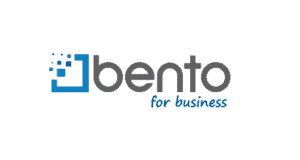Knowing how to differentiate between your personal and business expenses can save you not only money on tax payments, but from any potential errors which might land you in trouble with the Internal Revenue Service (IRS).
If you’re an incorporated business, deducting expenses helps reduce your business taxes. If you’re a sole proprietor, it helps you decrease your regular income as well as your self-employment tax.
While the IRS offers both personal and business deductions, you must make sure that the business deductions are only related to your business.

What comes under personal deductions?
Personal deductions, aka personal exemptions, are items on which a resident taxpayer is entitled to claim under tax deductions. As per the IRS, these tax deductions include personal or family expenses such as medical bills and mortgage interest payments.
Expenses such as charitable donations as well as expenses incurred while volunteering with a charity also qualify as personal exemptions.
Likewise, losses sustained due to theft and vandalism, breastfeeding supplies, tax preparation fees, and legal fees associated with a hobby are some of the personal tax deductions you can claim. The IRS has a comprehensive list of personal deductions on their website.
What comes under business deductions?
As per the IRS, in order for an expense to be considered for business deduction, it must be both ordinary and necessary. In other words, it must be a legitimate business expense.
For example, expenses on business supplies such as office furniture, office computers and software used for running business qualify as business deductibles. Similarly, money spent on rent and advertisement for business is also deductible.
However, if you are a freelance professional and working from home, you can deduct expenses associated with the portion of your home dedicated to your work. You can simply measure the square footage of your whole house and the space used for business, and find the percentage thereof.
Employee salaries and expenses made on behalf of your business are generally written off as well.
If you’re not really sure about a particular expense, familiarize yourself with the IRS guidelines on deducting business expenses.
Be careful about calculating your items for tax write-off. Tax experts suggest being careful about approaching items – such as travel expenses, cell phone bills, home office rent, office computer – for business deductions.
Keep Your Personal and Business Expenses Separate
When it comes to calculating business deductions, it’s very important to keep your personal and business separate. While that sounds pretty easy on the surface, most people end up making a mess of their business expenses.
As a rule of thumb, expenses which are purely personal in nature – mortgage payment, home utility bills, movie/concert tickets etc – cannot be itemized as business expenses. If you try to manipulate the items, you might get away at first, but you’re going to be in legal trouble if the IRS picks you up for audit and you’re unable to justify the deductions.
As a result, not only will you lose the money from the tax deductions, but you’ll pay additional penalties as well. Moreover, depending on the severity of the evasion, things could also get much worse for you. It’s simply not worth the trouble. So be very careful about expenses itemized under business deductions.
As a side note, the Internal Revenue Service (IRS) has released its annual “Dirty Dozen” list of tax scams for 2016. It serves as a caveat for the taxpayers, warning them of the potential scams they should be careful about.
Items You Could Deduct from Your Taxes
As a small business owner, you want to be aware of the numerous tax-related terms and rules in order to best handle how to treat your business deductions. But, that’s easier said than done.
Here’s a list of items that can help you differentiate between what constitute a business tax write-off and what don’t.
What SMBs Can Write Off
- Bank Service Charges
- Consulting Fees
- Advertising and Promotion
- Accounting Services
- Healthcare Costs
- Home Office Deductions
- Interest Expenses
- Internet
- Office Supplies
- Rent
- Software
- Payroll Processing
What SMBs Can’t Write Off
- Professional Accreditation Fees
- Salary to Self as a Sole proprietor
- Charitable Contributions of Your Home
- Political Contributions
- Penalties or fines you pay for breaking the law
- Lobbying expenses
- Federal income tax payments
Check out the full list of common small business write-offs here.
Final Thoughts
Separating personal expenses from business expenses is key to claiming legitimate business deductions. While filing business tax returns, be sure to claim only those deductions that are genuinely associated with your business operations. If unsure, you should turn to a professional rather than handle it yourself.
As a small business owner, how do you differentiate between your personal and business expenses with regards to claiming tax deductions? Please, let us know in the comments below.
About Bento for Business
Bento for Business offers a new generation of technology-driven SMART employee expense cards for SMBs and nonprofits. You can set spend limits for each card and allow only certain purchase categories (e.g. Bob the project manager can only spend $500/week and the card only works to purchase gas, hotels and at the hardware store). Turn cards on/off in real-time and receive SMS text or email alerts on activities you want to monitor. Enjoy unmatched visibility into cash flow, eliminate expense reports, and save time & money. Book a demo or start your free 60-day trial of Bento now!






